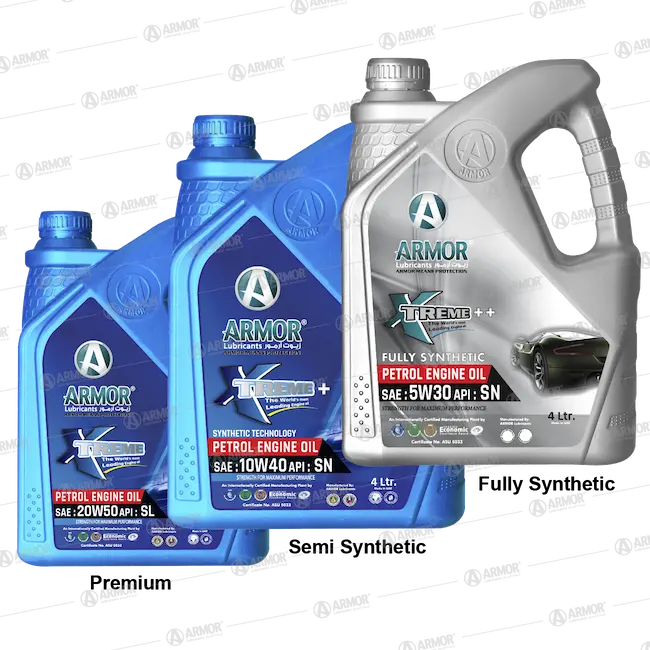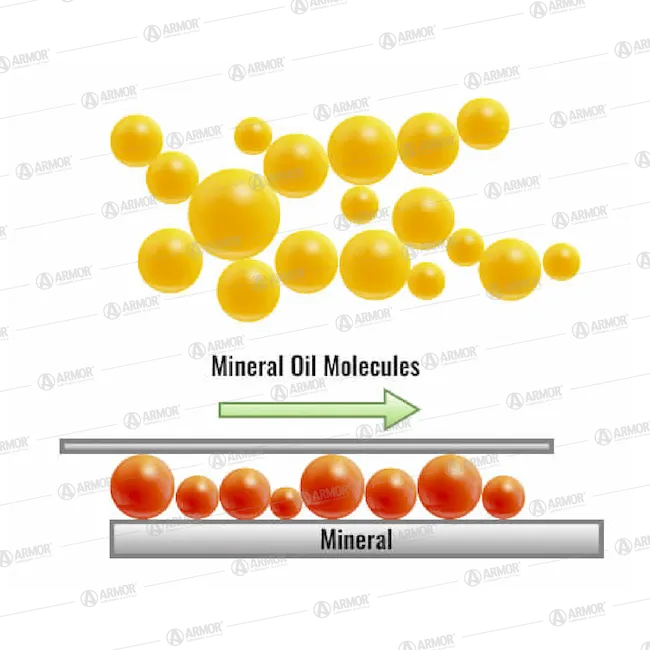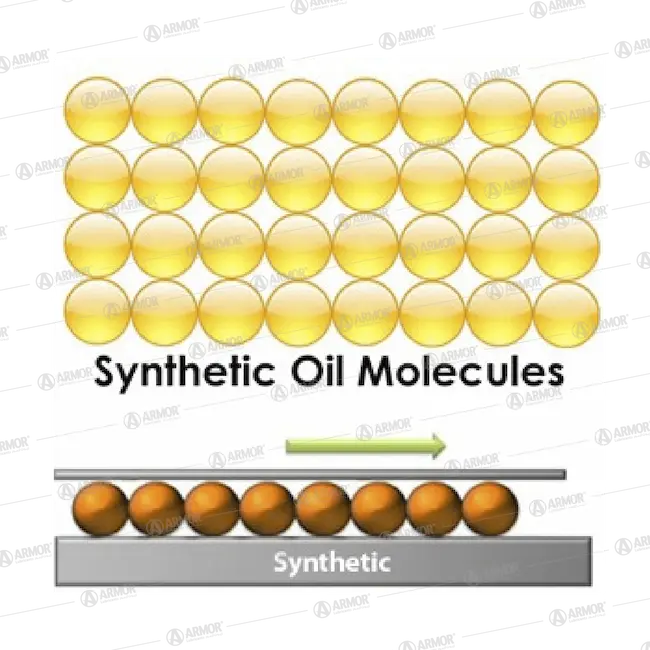- Armor Blog
- Consumer Education
- Protect Your Engine and Save 1000’s of Dirhams: How the Right Engine Oil Prevents Engine Damage?

Understand Why Your Choice in Engine Oil Matters So Much
Why Does Engine Oil Matter?
Before we explore how the right engine oil can save you money, it’s important to understand why engine oil matters in the first place. Simply put, engines require lubrication to prevent damage from friction and heat. As the metal components within an engine move, they create heat (and without a layer of oil to prevent it, would physically contact other surfaces).
Lubricant Oil provides a barrier against physical contact, helping to avoid damage. It also helps to lubricate engine components, allowing them to move with less resistance. Finally, engine oil helps combat high temperatures, which can lead to serious damage and degradation.
However, there is a misconception that “engine oil is engine oil” and that any formulation will work. That is not the case.
Why the Right Oil Is Necessary
Engine oil is manufactured to many different specifications. Some oil is thicker (higher viscosity), while other formulations are thinner (lower viscosity). Some oils are made strictly from mineral engine oil (conventional engine oil), while others have a higher chemical base (synthetic oils), and some blur the line between the two (synthetic blends).
You will even find many oil blends on the market designed for specific needs, such as:
- High mileage engines
- High-temperature environments
- High-performance applications
- Cleaning and removal of engine deposits

How Can Right Engine Oil Save You Thousands of Dirhams?
We started this guide with the premise that the right engine oil can save you thousands of dirhams over time. But how? It comes down to a couple of things: reducing wear and tear, and helping to prevent repairs and replacements.
Engine oil protects the metal surfaces of components within the engine, such as the piston heads and walls, the valves, the interior of the head, and more. The wrong engine oil leaves these areas vulnerable to physical contact and damage from friction, which wear away small amounts of metal over time. Eventually, the parts must be replaced. There is also the fact that the metal shavings move throughout the engine, creating dangerous deposits and additional wear and tear.
The right engine oil will help to reduce the amount of wear and tear within your engine. This has additional benefits – it’s not just about making sure your engine lasts as long as possible. The right engine oil can help to smooth out a rough idle, ensuring that the engine runs as smoothly as possible. It can also help ensure smooth, powerful acceleration improves fuel economy, and more.
From that, we can extrapolate some of the potential savings:
- Less money spent on repairs and replacements (an engine replacement might cost Dh20,000 or more)
- High-temperature environments
- Less fuel consumption, so less money spent on petrol
- Less lost time due to repairs, slow starts, and the like
As you can see, there are significant savings to be found here. Even if you never have to replace your engine, the loss of power, increased frequency of repairs and maintenance, and lost time due to those repairs can add up very quickly.
All of this begs the question: how do you find the right oil for your car? It’s not as simple as just walking into an auto parts store and picking up a bottle of oil. You need to know the right weight for your car, as well as which kind of oil is best suited for your climate. We’ll discuss that and more below.
What Engine Oil Is Right for Your Car?
On the surface, it would seem that finding the right engine oil would be a simple matter. However, it is actually more complicated than many drivers realize. In this section, we will break down what you need to know.
The Manufacturer’s Recommendation
The place to start is with the automaker’s recommendation. As the manufacturer, the company understands the tight tolerances within the engine better than most. You can usually find the automaker’s oil weight recommendation in the owner’s manual or written on the oil filler cap on the engine itself. It will probably look something like this:
It could be 0W30, 5W20, or something else, as well. Most automobiles today are designed to use what is called multi-viscosity oil. Understanding what that means is also important to protecting your engine and saving money over time in maintenance and repair costs.
Understanding Oil Weights and Viscosities
Once, engine oil was sold by what is sometimes called “straight weight”. That is, you would buy a quart of SAE 30 or SAE 40 oil. What this meant was that the oil behaved in a certain way no matter what the ambient temperature might be. The higher the number (40 versus 30, for instance), the thicker the oil was and the slower it moved.
However, straight-weight oil had many limitations. For instance, in cold weather, it was very thick and took a long time to begin flowing. An engine operating with straight-weight oil in cold temperatures could sustain a significant amount of wear and tear before the oil was able to protect moving parts.
To combat those problems, oil companies created what’s called multi-viscosity oil. It is the most common formulation for engine oil today, and is what most automakers recommend for their engines. Let’s go back to our example of 5W30 Oil.
In this situation, the two numbers and one letter mean several different things.

The W means “winter”, and it means that when temperatures are cold, the oil behaves like 5 weight oil. The 30 means that when temperatures are warmer (both during normal operation and in warmer climates), the oil behaves like 30 weight oil. Most vehicles today benefit from multi-viscosity oil blends because of tight tolerances within the engine that mean thicker oil has an even harder time flowing through the channels, as well as the fact that much of the world’s population lives in geographic areas where temperatures fluctuate over the course of a year.
Of course, that does not apply to everyone. For instance, in the Middle East, the climate is hot most of the year, meaning that thinner oil may simply be too thin to provide the protection necessary for your engine during the peak of summer.
Now that we have discussed oil weight and viscosity, let’s return to the discussion on how to find the right oil for your engine. We’ve already discussed the manufacturer’s recommendation. Next, we need to touch on conventional oil versus synthetic blends and full synthetic formulations.
Oil Type and Your Engine
There are three different types of lubricant oil on the market today designed for consumer vehicles. These are conventional oil (also called mineral oil), synthetic oil, and synthetic blends. While all of them can lubricate an engine, they are far from identical.
Conventional Engine Oil

Conventional oil is mineral oil and is mostly derived from petroleum. Some additives are used to help prevent unwanted outcomes, like foaming or oxidation, but the bulk of the oil is based on minerals. This is the original engine oil and is what has been used for decades.
There are advantages to conventional oil. For one thing, it’s affordable. For another, it’s widely available.
However, there are downsides, too. For instance, mineral oil is poorly suited to engines used in hot climates because it breaks down and does not provide adequate protection at higher temperatures. Another problem is that the oil’s lifespan is relatively short, so you’ll have to change it frequently to ensure adequate protection for your engine.
Synthetic Engine Oil

Full synthetic Engine oil has a heavier chemical makeup than mineral oil. However, it can outperform conventional oil across all temperature ranges. You’ll find additives here that help with things like removing deposits within the engine (detergent).
Some of the benefits of using synthetic oil include a drastically improved use life (some formulations can be used up to 10,000 miles). Synthetic oil is also better at protecting in both hot and cold climates. It is more free-flowing than mineral oil, as well, which means that it offers protection on engine startup faster than what’s possible with conventional oil. It can even reduce oil consumption in high-speed driving situations.
In terms of downsides, there are very few. It is more expensive than mineral oil, but that cost difference balances out thanks to reduced oil change intervals and reduced engine wear and tear.
Synthetic Blends
Synthetic Engine Oils are precisely what they sound like: a combination of synthetic and mineral oil. They were originally created as something of a midway point to help bridge the gap between conventional oil and fully synthetic formulations for consumers on the fence about making the jump.
Today, fewer and fewer companies are offering synthetic blend Engine Oil. This is due to a few reasons. One of those is that more consumers than ever before understand the benefits of full synthetic oil and the drawbacks of mineral oil. Another is that the growing range of full synthetic formulations means that there’s an option for virtually every need, which reduces demand for blended formulations.
For most consumers, particularly those in hot climates such as the Middle East, full synthetic formulations are the better option. However, there’s more involved in making this decision. You also need to consider the quality of the engine oil itself.
The Question of Quality
With the questions of weight and type out of the way, we need to touch on oil quality. While there are many different manufacturers around the world, not all of them create products you want to entrust with your car’s engine. So, how do you tell if an oil formulation is high quality?
First, make sure it’s rated for your car. For consumer vehicles, look for labels with the letter S on them (for service – note that this applies only to petrol engines). For heavier-duty diesel engines, look for the letter C (for commercial).
It’s also important to buy from an leading lubricant oil company that adheres to stringent quality-related protocols. The product label should highlight API certification through an independent third party. This should also include the certificate number.
Note that the API regularly updates formula specifications and denotes new ones with different combinations of letters. For instance, the most recent category designations are SN, SM, SL, and SJ. In the UAE, obsolete categories are not removed from shelves, so always make sure that you’re buying an API Approved oil category that’s compatible with your year, make, engine size, and type.
Choose Armor Lubricants

Armor Lubricants is one of the leading petrol engine oil manufacturers in UAE. We have been in business for over 14 years and offer a wide range of engine oils for both petrol and diesel engines. Our products are made with high-quality base oils and additives, and they are designed to meet the latest industry standards. We are based in the UAE, and while we ship around the world, we also design our products to provide the protection and peace of mind that our Middle Eastern customers require. Contact us today to know more about our broad range of engine oils for consumer vehicles.
Some of the benefits of using Armor Engine oil include:
- Improved engine performance
- Increased fuel efficiency
- Reduced emissions
- Extended engine life
- Protection against wear and tear
Here are some of the reasons why Armor Lubricants is the Best Engine Oil Manufacturer in the UAE:
- They have a long history of experience in the industry.
- They use high-quality base oils and additives.
- Their products are designed to meet the needs of a variety of vehicles.
- They offer a warranty on their products.
- They have a strong customer service team.
If you are looking for a high-quality engine oil for your vehicle, Armor Lubricants is a great option. Their products are backed by a warranty and they have a strong customer service team.
Armor Lubricants Factory has the capacity of 50,000 MT per annum for manufacturing High quality synthetic lubricants for best performance. The company is based in UAE and it exports its products globally through one of the main seaports in Dubai (Jebel Ali Port) to the world. Amor Lubricants ensure that they being their visionary innovation to the lubricant technology space both in UAE and international customers. Armor Lubricants is a leading player in the Middle East Lubricant Market.




 Spear Lubricants
Spear Lubricants Armada lubricant
Armada lubricant Ace lubricants
Ace lubricants Perfect lubricants
Perfect lubricants Enzo lubricants
Enzo lubricants Lawrence lubricants
Lawrence lubricants